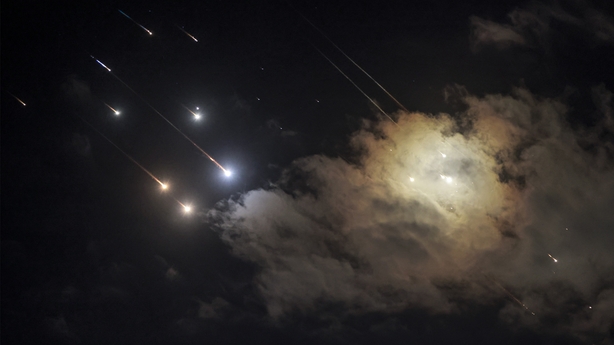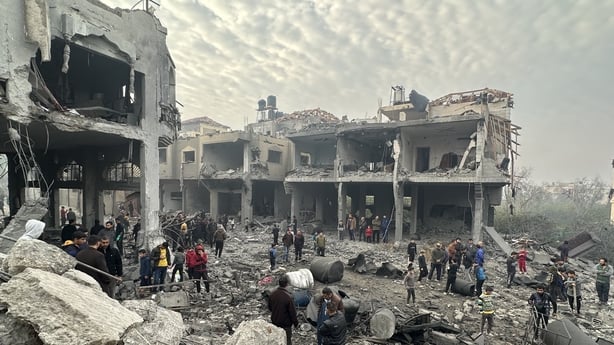The last time I flew into Israel's Ben Gurion Airport, it felt like the Middle East was on the cusp of a regional war.
The date was 2 October 2024. The previous night, Iran launched around 200 ballistic missiles at Israel, forcing the nation's airspace into a rare shutdown.
By this point, Gaza had endured nearly a year of a relentless and brutal war. Israel itself was still grappling with the wounds of what had happened a year earlier on 7 October.
And the conflict in Lebanon had just begun to spiral into a full-blown war with Hezbollah, one of several Iranian proxy groups that had turned their weapons toward Israel.
If ever there was a time when the warnings about a wider war didn't feel like hyperbole - when the weight of the moment actually felt palpable - it was on 2 October.
When I landed in Israel last night, around three months later, that tension had largely evaporated.

November's ceasefire between Israel and Hezbollah has held firm, allowing residents at the country's northern border to return to their homes.
Iran's influence in the region has notably waned, for various reasons.
And Israel and Hamas appear to be mere days away from a ceasefire that could end the war in Gaza for the foreseeable future and bring hostages home for the first time in more than a year.
The tension may be gone - but one aspect of the framing about this deal in Israel reveals a stark reality.
When I explained to border control agents or taxi drivers that I was in Israel to cover "the ceasefire", they looked at me with puzzlement.
I quickly caught on, remembering that, in Israel, what much of the world calls a "ceasefire" - with its focus on halting the devastation in Gaza - is almost invariably framed as a "hostage deal".
That's no great surprise to me.
Three months ago, as I covered the anniversary of 7 October, the hostages dominated every conversation in Israel.
Read more:
Watch: A look back at 15 months of war in Gaza
Gaza ceasefire: What it means for peace in the Middle East
Israelis I spoke with could recite the exact number still held in Gaza. It's worth noting that their anger wasn't just directed at Hamas, but also at their own government - at what many saw as a military strategy that hadn't prioritised bringing the hostages home.
But the point is: few in Israel view this potential deal as a way to end the war in Gaza. Unlike in Ireland, the daily reality of Gaza rarely penetrates the Israeli consciousness.
The death and destruction doesn't appear on their television screens or social media feeds.
Instead, Israelis' screens are filled with images from the nightly vigils in Tel Aviv, where the faces of the hostages stare out from posters and banners - young and old, soldiers and civilians, their photos captured in happier times.

These images have become so ubiquitous that many Israelis know the faces by heart, can recount their stories, their ages, the circumstances of their capture.
But the consequence of that is there seems to be little recognition that a densely populated strip of land has been transformed by their country's military campaign - its infrastructure pulverised, its people trapped in an ever-shrinking space.
Even among those who can readily cite Gaza's death toll, many remain unmoved. The trauma of 7 October has created an emotional wall that few here seem able, or willing, to scale.
In this small pocket of land that comprises Israel and Palestine - a space so tiny you can drive across it in hours - there exists no shared understanding of what the past 15 months have meant, or what peace might look like.
So, while last night it felt like I was arriving at a land on the precipice of a tangible calm, it's impossible not to feel that this stability rests on fragile foundations.
Hope, while tempting in moments like these, feels clipped by the weight of the parallel realities.






